Is your feline friend drooling excessively, causing you to worry? Did you know drooling can be a sign of several underlying health issues in cats? In this article, we’re going to delve into what could potentially be causing the excessive salivation and propose some possible solutions.
Keep reading to unravel this cat mystery and discover how best you can help your precious pet!
Key Takeaways
- Excessive drooling in cats can be a sign of dental disease, upper respiratory infections, nausea, gastrointestinal blockage, underlying health conditions, trauma, bitter taste stimulation, or neurological disease.
- Cats may also drool due to stress, fear, or when they are content and relaxed.
- Drooling is normal when cats knead or purr and should not be a cause for concern.
- If your cat’s drooling lasts for more than a day or two and is accompanied by other symptoms like vomiting or refusing to eat, it’s important to take them to the vet for proper diagnosis and treatment.
Contents
Common Causes of Cat Drooling
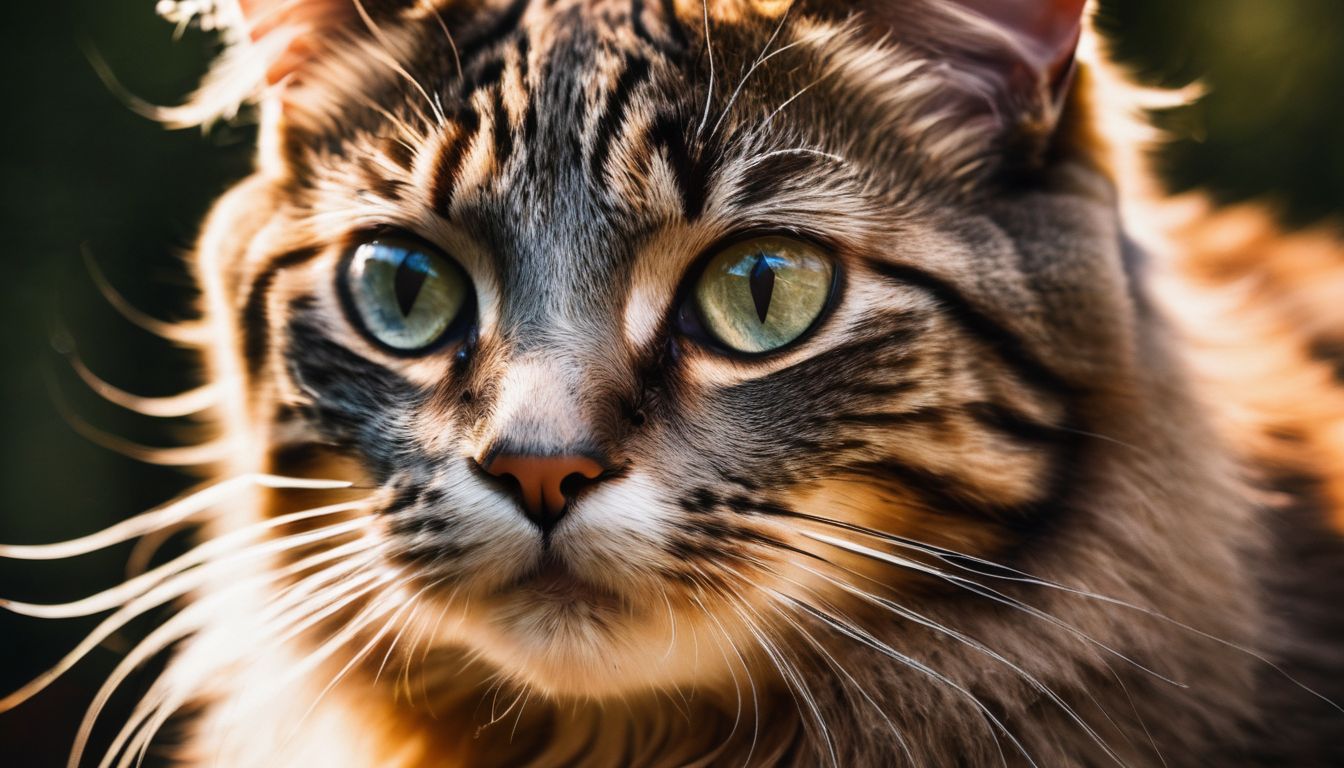
Several common causes can lead to excessive drooling in cats, including dental disease, upper respiratory infections, nausea, gastrointestinal blockage, underlying health conditions, trauma, bitter taste stimulation, and neurological disease.
Dental disease
Cats can get dental diseases just like humans. Bad teeth hurt and make eating tough for your cat. They drool because their mouth hurts. The drool may have blood in it or smell bad. You need to take your cat to a vet for a check-up if you see this happening.
Upper respiratory infections
Cats can get colds like humans. This is called an upper respiratory infection. It starts in the nose and throat. Some signs are coughing, sneezing, and watery eyes. A cat may also drool a lot.
Drooling happens as your cat tries to fight off the infection. It’s not fun for them or you. But it is part of getting better. Be sure to give your cat enough water to drink during this time.
Nausea
Nausea can make your cat drool a lot. It’s like when you feel sick to your stomach. This might be due to bad food or sickness in the belly or gut area. Cats with nausea will not eat well and may act strange.
If they throw up, there’s more spit and this leads to drooling too. Always keep an eye on them for any new signs of feeling ill.
Gastrointestinal blockage
One possible reason why your cat may be drooling is because of a gastrointestinal blockage. This happens when something gets stuck in your cat’s digestive system, like a bone or a piece of string.
The blockage can cause pain and discomfort for your cat, which may lead to excessive drooling. If you notice that your cat is also vomiting, has diarrhea, or seems to have a decreased appetite, it’s important to take them to the vet right away.
They will be able to diagnose and treat the blockage before it causes any further harm to your furry friend.
Underlying health conditions
Some underlying health conditions can cause your cat to drool excessively. These conditions may include issues with the salivary glands, such as inflammation or blockage, or problems with the throat or swallowing.
Some cats may also experience excessive drooling due to certain diseases like kidney disease or liver problems. If you notice that your cat is consistently drooling a lot, it’s important to take them to the vet for a check-up so that any underlying health conditions can be identified and treated properly.
Trauma
Trauma can also cause cats to drool excessively. If your cat has been involved in an accident or experienced a physical injury, it may lead to trauma and drooling. Cats are very sensitive creatures, and any form of trauma can affect them both physically and emotionally.
It’s important to closely monitor your cat after such an incident and check for signs of drooling or other abnormal behavior. If you notice excessive drooling or any other concerning symptoms, it’s best to consult with a veterinarian as soon as possible for proper diagnosis and treatment.
Bitter taste
Sometimes, a bitter taste can cause cats to drool. If your cat has come into contact with something that tastes unpleasant, it may start drooling as a way to get rid of the taste. This could happen if they accidentally ingest a toxic substance or eat something that doesn’t agree with them.
It’s important to make sure that your cat doesn’t have access to harmful substances and keep an eye out for any signs of illness or discomfort.
Neurological disease
Neurological disease can also cause cat drooling. Conditions like epilepsy, brain tumors, or nerve damage can affect the nerves that control saliva production. When these nerves are affected, it can lead to excessive drooling in cats.
If you notice that your cat is drooling a lot and showing other neurological symptoms like seizures or loss of coordination, it’s important to take them to the vet for an evaluation.
The vet will be able to determine the underlying cause of the neurological symptoms and recommend appropriate treatment options.
Other Reasons Your Cat May Be Drooling
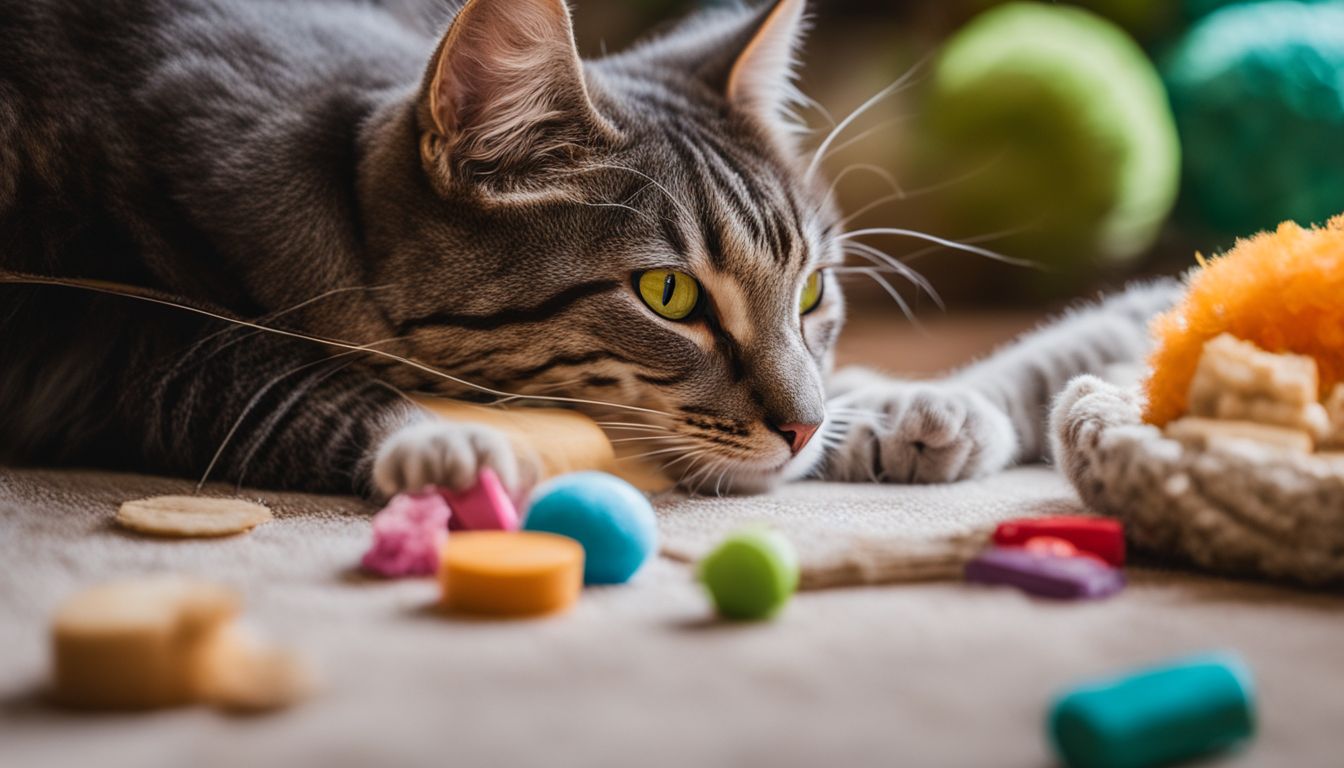
In addition to medical causes, there are other reasons why your cat may be drooling.
Stress
Stress can also make your cat drool. Cats can get stressed out for various reasons, such as changes in their environment, loud noises, or even being around unfamiliar people or animals.
When cats are stressed, they may start drooling as a way to cope with their anxiety. It’s important to create a calm and comfortable space for your cat to help reduce stress levels.
Providing hiding spots, soothing music, and using pheromone sprays can help alleviate stress and minimize drooling in your cat. If you notice persistent or excessive drooling due to stress, it’s always a good idea to consult with your veterinarian for further guidance on how to manage the situation effectively.
Fear
Fear is another possible reason why your cat may be drooling excessively. When cats feel afraid or threatened, they can produce more saliva than usual. This excess saliva can result in drooling.
It’s important to create a calm and stress-free environment for your cat to help alleviate their fear and reduce excessive drooling. If you notice that your cat is consistently drooling due to fear, it may be helpful to consult with a veterinarian or animal behaviorist for further guidance on how to address this issue.
Contentment
Cats may also drool when they are feeling content. When a cat is relaxed and happy, it can sometimes lead to excessive drooling. This is usually seen when your cat is purring or kneading on you.
It’s their way of showing that they are comfortable and enjoying the moment. So if you notice your cat drooling while being petted or during moments of relaxation, there’s no need to worry as it is completely normal behavior for content cats!
When is Drooling Normal for Cats?
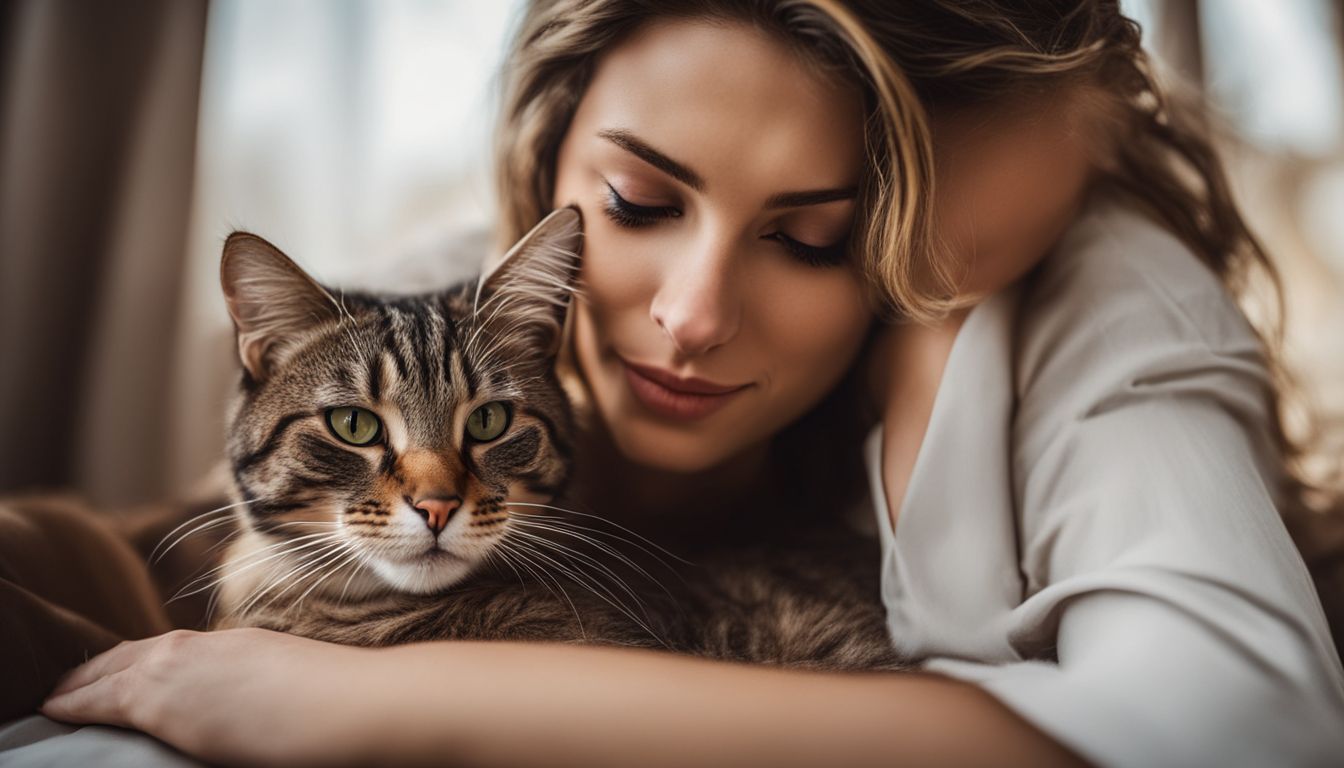
Cats may drool when kneading or purring, as well as when they are happy and relaxed.
While kneading or purring
When your cat is kneading or purring, you may notice some drooling. This is completely normal and nothing to worry about. Kneading is when your cat presses their paws back and forth on a soft surface, like a blanket or your lap.
It’s a behavior that they develop as kittens when they’re nursing from their mother. Purring, on the other hand, is a sign of contentment and relaxation for cats. Both of these actions can stimulate saliva production, resulting in some drooling.
So if you see your cat drooling while kneading or purring, just know that it’s a natural response and not something to be concerned about.
When happy and relaxed
Cats may also drool when they are happy and relaxed. It’s a sign that they are feeling content and comfortable in their environment. When cats knead or purr, it can stimulate the production of saliva, causing them to drool a little bit.
This is completely normal behavior for cats, so there’s usually no need to worry if your cat is drooling while they’re in a happy and relaxed state. Just enjoy the fact that your furry friend is feeling calm and at ease!
Why Do Some Cats Drool When You Pet Them?
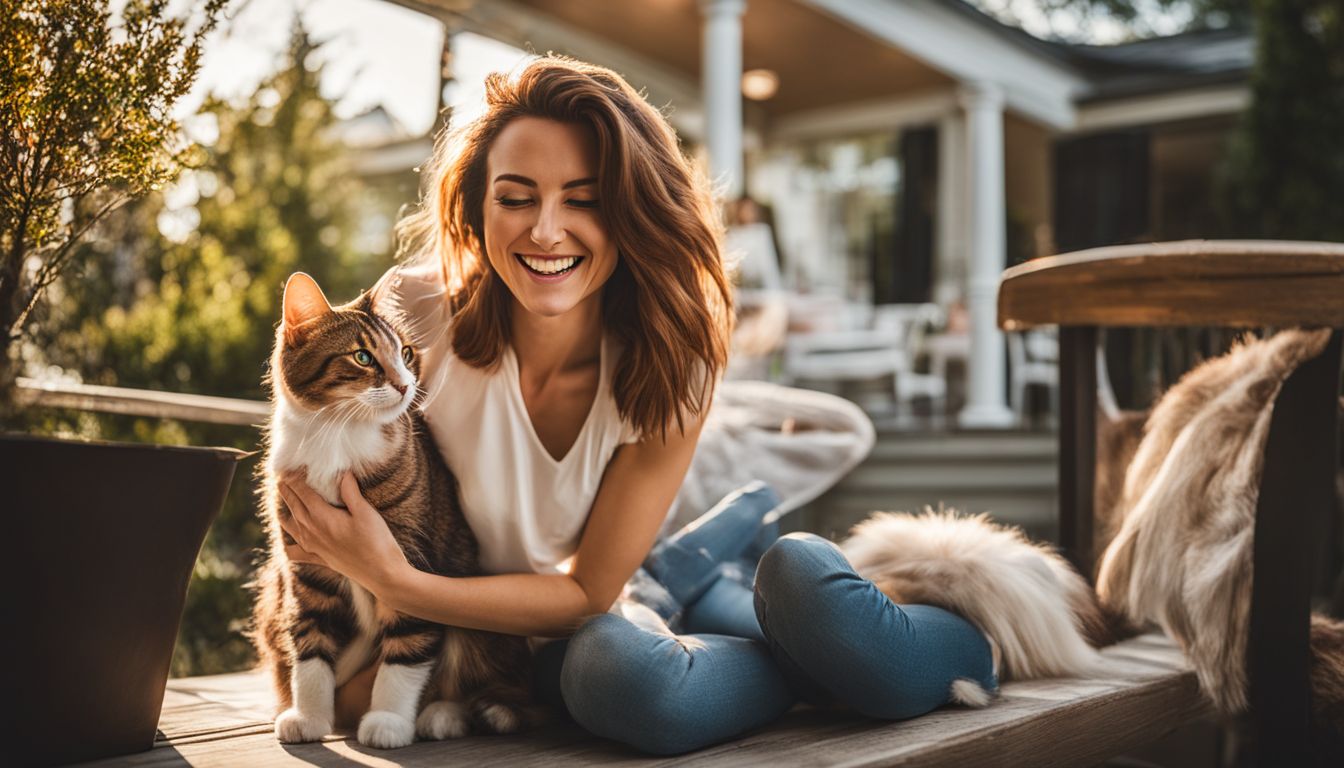
Some cats drool when you pet them because it makes them feel happy and relaxed. When you stroke your cat, it can stimulate the salivary glands in their mouth, causing them to produce more saliva.
This is similar to how a dog might drool when they’re excited or anticipating something delicious. It’s completely normal for some cats to drool during these moments of pleasure. So if your cat starts drooling when you give them affection, don’t worry – it just means they’re enjoying the attention!
When Should You Take Your Cat to the Vet for Drooling?
If your cat is drooling excessively and it lasts for more than a day or two, it’s important to take them to the vet. This is especially true if they’re showing other symptoms like vomiting, diarrhea, or refusing to eat.
Drooling can be a sign of dental disease, infections, gastrointestinal blockage, or underlying health conditions that need medical attention. The vet will be able to diagnose the cause of the drooling and provide appropriate treatment.
Don’t hesitate to seek veterinary care if you notice any concerning changes in your cat’s drooling behavior.
Tips for Managing Cat Drooling
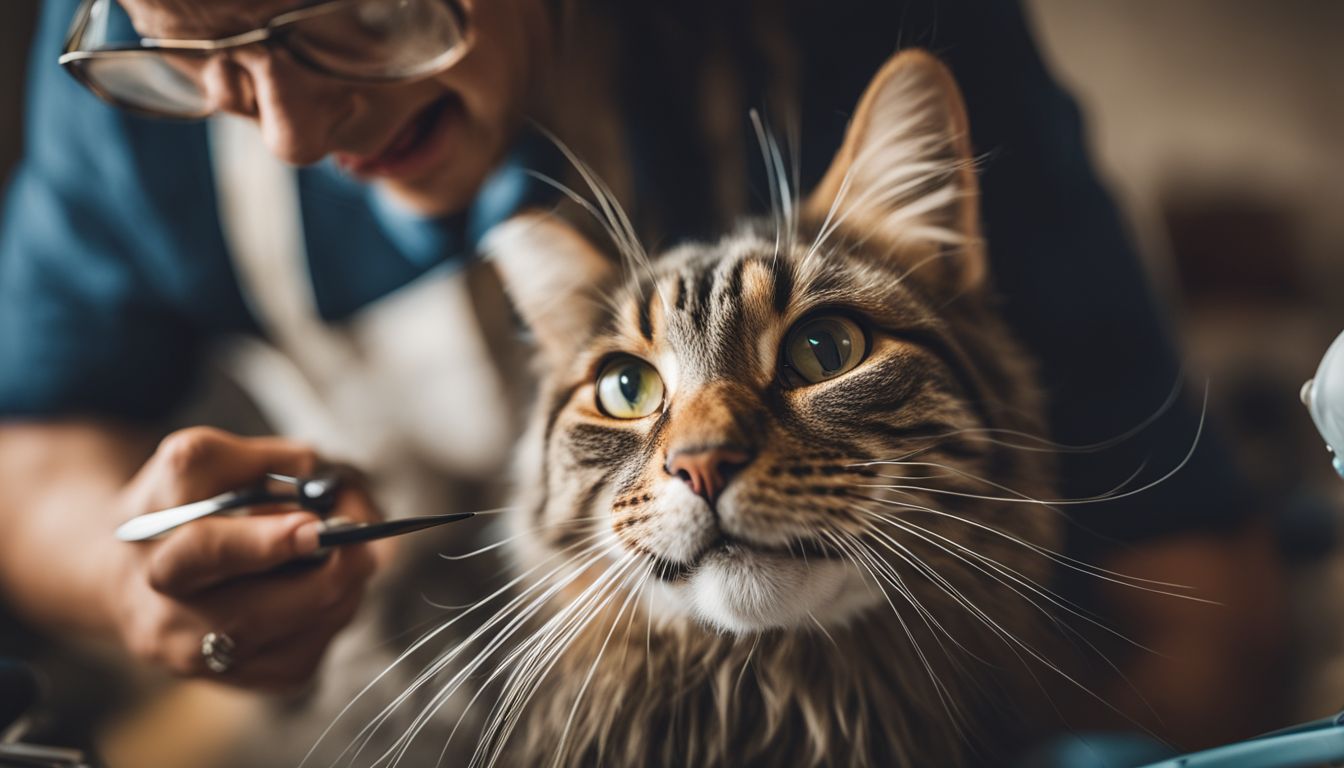
Take your cat for regular dental check-ups to catch any issues early. Provide proper nutrition to support oral health, and keep your cat stress-free to minimize drooling. Administer medication correctly if necessary.
Regular dental check-ups
Regular dental check-ups are essential for maintaining your cat’s oral health. Here are some tips to help you ensure your cat’s teeth are in good condition:
- Schedule regular appointments with your veterinarian for dental examinations and cleanings.
- Brush your cat’s teeth regularly using a soft-bristled toothbrush and cat-friendly toothpaste.
- Provide dental treats or toys that can help reduce plaque buildup.
- Monitor your cat’s eating habits and look out for signs of dental pain or discomfort.
- Discuss any concerns or changes in your cat’s oral health with your vet.
Proper nutrition
Proper nutrition is important for managing cat drooling. Here are some tips to ensure your cat gets the right diet:
- Feed your cat a balanced and nutritious diet that meets their specific needs.
- Provide fresh water at all times to keep your cat hydrated.
- Avoid feeding your cat foods that are known to cause excessive saliva production, such as onions or garlic.
- Consider feeding your cat smaller, more frequent meals to prevent overeating and digestive issues.
- Consult with your veterinarian to determine if any dietary supplements may be beneficial for your cat’s oral health.
Keeping your cat stress-free
To keep your cat stress-free, try these tips:
- Provide a quiet and safe space for your cat to retreat to.
- Create a consistent daily routine for feeding, playtime, and sleep.
- Use calming pheromone sprays or diffusers in your home.
- Give your cat plenty of opportunities for exercise and mental stimulation.
- Minimize sudden changes in your cat’s environment or routine.
- Avoid loud noises or chaotic environments that may cause stress.
- Provide hiding spots or elevated perches for your cat to feel secure.
- Use positive reinforcement training techniques to encourage good behavior.
- Regularly groom and check your cat for any signs of discomfort or illness.
- Spend quality time with your cat through gentle petting and interactive play.
Administering medication correctly
Administering medication correctly is important to ensure your cat’s health and well-being. Here are some tips on how to do it properly:
- Follow the instructions: Read the medication label carefully and follow the recommended dosage and frequency. It’s crucial to give the right amount of medication at the right time.
- Use flavored medications: Some medications come in flavors that cats find appealing, such as tuna or chicken flavor. This can make it easier for them to take their medicine without fuss.
- Hide medication in food: If your cat refuses to take medication directly, you can try hiding it in a small amount of soft food or treats. Make sure they eat the entire portion to ensure they receive the full dose.
- Be gentle: Approach your cat calmly and gently when giving them medication. Use a soft voice and soothing touch to help them feel relaxed during the process.
- Ask for assistance if needed: If administering medication becomes a challenge, don’t hesitate to ask for help from a veterinarian or trained professional. They may have techniques or alternative methods that can make it easier for both you and your cat.
Conclusion
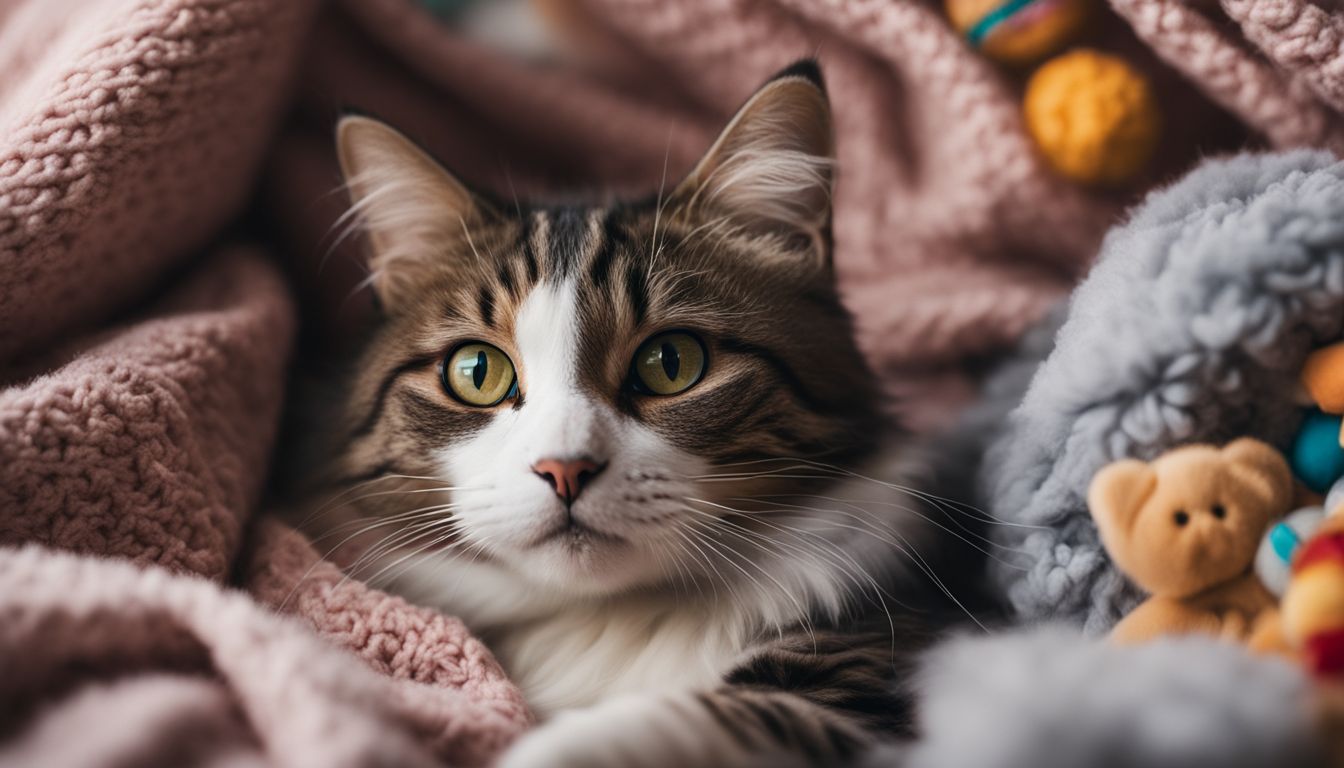
In conclusion, understanding why your cat is drooling is important for their overall health and well-being. Common causes can include dental disease, infections, nausea, and underlying health conditions.
It’s crucial to monitor your cat’s drooling behavior and consult a veterinarian if it becomes excessive or accompanied by other concerning symptoms. Taking proper care of your cat’s oral hygiene, nutrition, and stress levels can help manage drooling issues effectively.
Remember, a happy and healthy cat means less drooling!
FAQs
1. Why is my cat drooling excessively?
Excessive drooling in cats can be caused by dental issues, nausea or vomiting, stress, excitement, or certain health conditions. It’s best to consult a veterinarian for an accurate diagnosis.
2. Is it normal for cats to drool while purring?
A small amount of drool while purring is normal in some cats. However, excessive drooling while purring could indicate an underlying issue and should be checked by a vet.
3. How can I help my cat if it is drooling due to dental problems?
If your cat has dental issues causing excessive drooling, schedule a veterinary appointment for a thorough oral examination and potential dental treatment such as tooth extraction or cleaning.
4. What should I do if my cat suddenly starts drooling heavily?
If your cat starts drooling heavily out of the blue, it could be a sign of poisoning or an emergency situation. Immediately contact your veterinarian for guidance and seek prompt medical attention.
5. Can stress cause excessive drooling in cats?
Yes, stress can lead to excessive drooling in cats as they may lick their lips more frequently when anxious or fearful. Creating a calm and peaceful environment may help alleviate the issue; however, consult with a vet if the problem persists.

